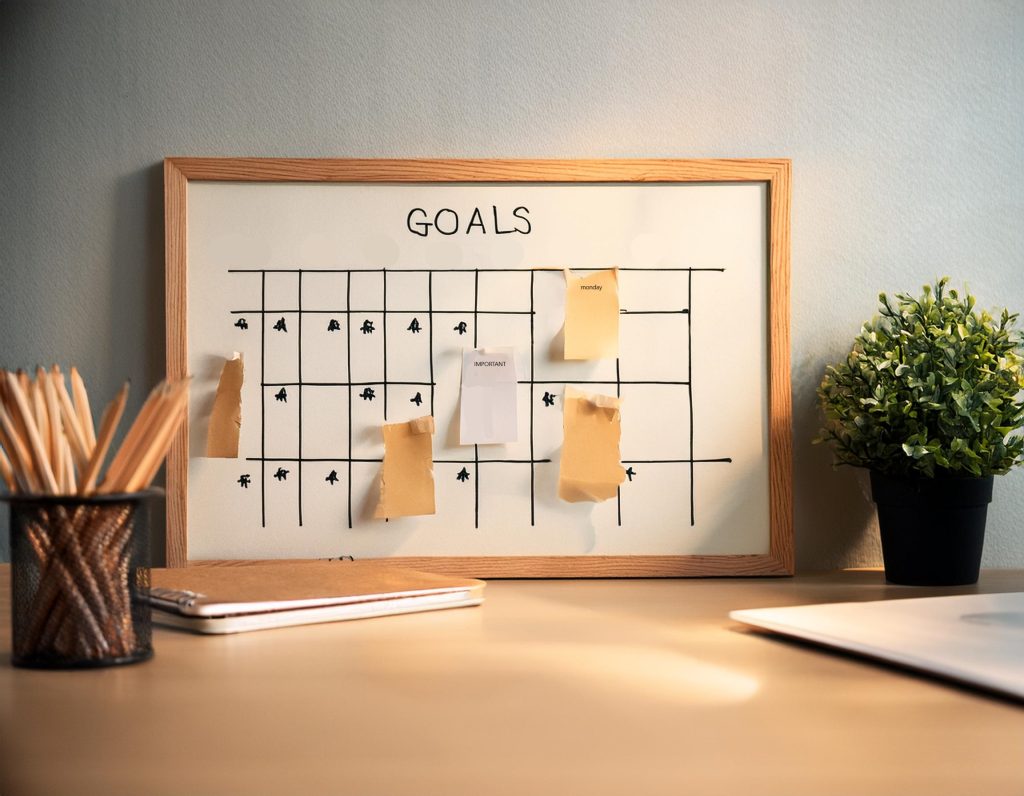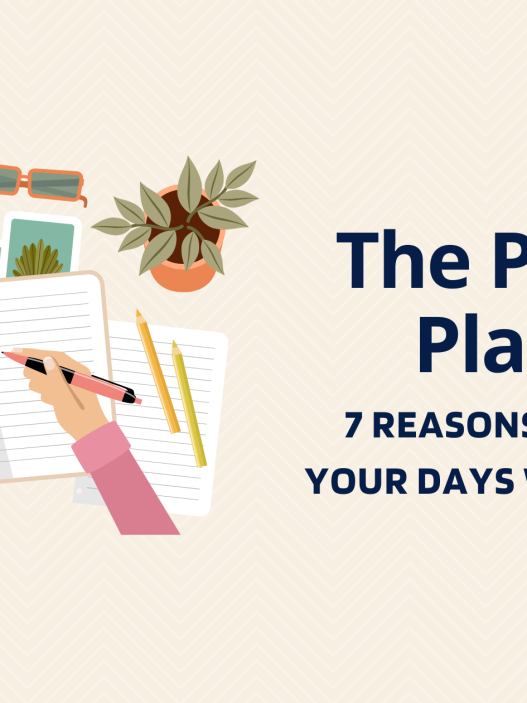Starting to plan your day can seem overwhelming at first, but with a few simple guidelines, you can create a routine that enhances your productivity and well-being. Here’s a friendly beginner’s guide with seven important things to keep in mind if you want to start planning your day effectively.

1. Set Clear Goals
- Why It Matters: Having clear goals provides direction and motivation. Knowing what you want to achieve helps you prioritize tasks and stay focused.
- How to Do It: Start by setting both short-term and long-term goals. Write them down and break them into smaller, manageable tasks that you can incorporate into your daily plans.

2. Choose the Right Tools
- Why It Matters: Using the right tools makes planning easier and more effective. Whether you prefer a digital app or a physical planner, having a dedicated place to organize your schedule is crucial.
- How to Do It: Experiment with different tools to see what works best for you. Popular options include planners, bullet journals, and digital calendars like Google Calendar or apps like Todoist.

3. Prioritize Your Tasks
- Why It Matters: Prioritizing ensures that you focus on the most important tasks first, making better use of your time and energy.
- How to Do It: Use a prioritization method, such as the Eisenhower Matrix, which categorizes tasks into four quadrants: urgent and important, important but not urgent, urgent but not important, and neither urgent nor important.

4. Time Block Your Schedule
- Why It Matters: Time blocking helps you allocate specific periods for different activities, reducing distractions and enhancing focus.
- How to Do It: Divide your day into blocks of time dedicated to specific tasks or activities. For example, allocate 9-11 AM for focused work, 11-12 PM for emails, and 1-2 PM for meetings. Stick to these blocks as closely as possible.

5. Include Breaks and Downtime
- Why It Matters: Regular breaks are essential for maintaining productivity and preventing burnout. Downtime allows you to recharge and stay focused throughout the day.
- How to Do It: Schedule short breaks between tasks and longer breaks for meals. Also, allocate time for relaxation and leisure activities in your daily plan.

6. Be Flexible and Adaptable
- Why It Matters: Life is unpredictable, and being flexible allows you to adapt to unexpected changes without feeling stressed or overwhelmed.
How to Do It: While it’s important to stick to your plan, be prepared to adjust your schedule as needed. If something urgent comes up, rearrange your tasks and stay calm.

7. Reflect and Adjust
- Why It Matters: Reflecting on your day helps you understand what worked well and what didn’t, allowing you to improve your planning process over time.
- How to Do It: At the end of each day, take a few minutes to review your progress. Note any unfinished tasks, reflect on your achievements, and identify areas for improvement. Use this insight to adjust your plan for the next day.

Planning your day doesn’t have to be daunting. By setting clear goals, choosing the right tools, prioritizing tasks, time blocking, including breaks, staying flexible, and reflecting on your progress, you can create a daily routine that boosts your productivity and well-being. Start incorporating these tips into your planning process, and enjoy the benefits of a more organized and fulfilling life. Happy planning!





















